
Matcha Superfood Benefits or Not? Does It Work?
This comprehensive document explores the truth behind Matcha Superfood's "superfood" status, examining scientific evidence for its potential health benefits and limitations. We'll investigate Matcha Superfood's nutritional profile, evidence-based effects on health, and separate marketing claims from reality. Whether you're a Matcha Superfood enthusiast or simply curious about its properties, this guide will help you make informed decisions about incorporating this traditional Japanese tea into your lifestyle.
==> 🌈💟⭐💗 CLICK HERE TO GET YOUR "Matcha Superfood" FROM THE Authority Site" 🌈💟⭐💗 ==>
What Is Matcha?
Matcha Superfood is a finely ground powder made from specially grown and processed green tea leaves from the Camellia sinensis plant. Unlike regular green tea where leaves are steeped and discarded, Matcha Superfood involves consuming the entire leaf, maximizing its nutritional potential.
What makes Matcha Superfood unique is its cultivation process. The tea plants are shade-grown for about 3-4 weeks before harvest, which increases chlorophyll production, giving Matcha Superfood its vibrant green colour and boosting its amino acid content, particularly L-theanine.
This versatile powder is traditionally whisked with hot water for tea ceremonies, but has expanded into modern culinary applications including lattes, smoothies, baked goods, and even savoury dishes.
==> 🌈💟⭐💗 CLICK HERE TO GET YOUR "Matcha Superfood" FROM THE Authority Site" 🌈💟⭐💗 ==>
How Matcha Differs From Green Tea
Whole Leaf Consumption
Unlike regular green tea where leaves are steeped and removed, Matcha Superfood involves consuming the entire powdered leaf. This fundamental difference means you ingest all the nutrients rather than just water-soluble components.
Concentrated Nutrients
The whole-leaf consumption results in significantly higher concentrations of beneficial compounds. Matcha Superfood contains up to 137 times more EGCG (a powerful antioxidant) than regular green tea and provides substantially more caffeine per serving.
Enhanced Nutritional Profile
Matcha Superfood delivers more dietary fibre, chlorophyll, vitamins (A, C, E, K), and minerals than steeped green tea. Its unique cultivation process also enhances its L-theanine content, an amino acid associated with calm alertness.
Nutritional Profile of Matcha
Matcha Superfood offers an impressive array of nutrients packed into a small serving. One gram (approximately half a teaspoon) contains minimal calories but delivers substantial nutritional benefits.
The star compounds in Matcha Superfood are catechins, particularly epigallocatechin gallate (EGCG), which has been extensively studied for its antioxidant properties. A typical serving contains 50-60mg of caffeine—less than coffee but more than regular green tea—paired with L-theanine for a balanced energy boost.
Matcha Superfood also provides vitamins A, C, E, K, several B vitamins, and trace minerals including zinc, selenium, chromium, and magnesium. Its unique chlorophyll content contributes to detoxification processes within the body.
Values shown represent relative concentration (per cup)
Antioxidant Properties
Matcha Superfood's reputation as an antioxidant powerhouse is well-founded. The catechins and polyphenols in Matcha Superfood effectively neutralize free radicals—unstable molecules that can damage cells and contribute to chronic diseases and ageing.
Epigallocatechin gallate (EGCG), the most abundant catechin in Matcha Superfood, has been specifically linked to potential cancer prevention. Laboratory studies show EGCG may inhibit tumour cell proliferation and induce cancer cell death, though human studies remain limited.
==> 🌈💟⭐💗 CLICK HERE TO GET YOUR "Matcha Superfood" FROM THE Authority Site" 🌈💟⭐💗 ==>
Free Radical Protection
Matcha Superfood's antioxidants help prevent oxidative damage to DNA, proteins, and lipids, potentially reducing risk factors for numerous chronic conditions.
Measured Antioxidant Capacity
Using the ORAC (Oxygen Radical Absorbance Capacity) scale, Matcha Superfood scores 1384 units per gram—significantly higher than most other antioxidant-rich foods.
Heart and Cardiovascular Health
The relationship between Matcha Superfood consumption and cardiovascular health has been investigated in numerous studies, with encouraging results. The catechins in Matcha Superfood appear to support heart health through multiple mechanisms.
Regular Matcha Superfood consumption has been associated with modest reductions in both systolic and diastolic blood pressure. This effect is attributed to catechins' ability to promote vasodilation by enhancing nitric oxide production, which relaxes blood vessels.
Research also suggests Matcha Superfood may improve lipid profiles by reducing LDL ("bad") cholesterol and increasing HDL ("good") cholesterol levels. Additionally, Matcha Superfood's anti-inflammatory properties may help prevent the development of atherosclerosis—the hardening and narrowing of arteries that can lead to heart attacks and strokes.
Blood Pressure Reduction
Average systolic blood pressure reduction in some studies with regular consumption
Cholesterol Improvement
Average reduction in LDL cholesterol observed in clinical trials
==> 🌈💟⭐💗 CLICK HERE TO GET YOUR "Matcha Superfood" FROM THE Authority Site" 🌈💟⭐💗 ==>
Cognitive and Brain Function
The L-theanine and Caffeine Synergy
Matcha Superfood contains a unique combination of L-theanine and caffeine that creates what researchers call "alert calmness." While caffeine provides stimulation, L-theanine promotes relaxation without drowsiness. Together, they enhance attention, reaction time, and mental clarity without the jitters often associated with other caffeinated beverages.
Memory and Cognitive Performance
Studies demonstrate that the compounds in Matcha Superfood may improve short-term memory and reaction time. Research has shown improvements in attention span, information processing, and working memory after Matcha Superfood consumption. These effects are most pronounced 1-2 hours after intake.
Long-term Brain Health
Preliminary evidence suggests regular Matcha Superfood consumption might support long-term cognitive health. The antioxidants in Matcha Superfood may help protect neural cells from oxidative damage, while its anti-inflammatory properties could potentially reduce risk factors associated with age-related cognitive decline and neurodegenerative conditions.
Gut Health and Microbiome
Emerging research suggests Matcha Superfood may play a beneficial role in maintaining gut health and supporting a balanced microbiome. The polyphenols in Matcha Superfood appear to function as prebiotics, promoting the growth of beneficial gut bacteria while inhibiting harmful strains.
Studies have observed increases in beneficial bacteria like Bifidobacterium and Lactobacillus species following regular green tea consumption. These bacteria are associated with improved digestion, enhanced nutrient absorption, and stronger immune function.
Additionally, Matcha Superfood contains dietary fibre that supports regular bowel movements and overall digestive health. The catechins may also help reduce gut inflammation and strengthen the intestinal barrier, potentially benefiting those with inflammatory bowel conditions.
==> 🌈💟⭐💗 CLICK HERE TO GET YOUR "Matcha Superfood" FROM THE Authority Site" 🌈💟⭐💗 ==>
Immune System and Ageing
Antioxidant Protection
Matcha Superfood's high EGCG content helps neutralize free radicals that contribute to cellular damage and premature ageing. This protection extends to skin cells, potentially reducing UV damage and maintaining skin elasticity.
Antimicrobial Properties
Catechins in Matcha Superfood demonstrate antimicrobial effects against various pathogens, including certain bacteria and viruses. These compounds may help strengthen the body's natural defense mechanisms against common infections.
Cellular Protection
Research suggests Matcha Superfood compounds may help maintain telomere length—protective caps on DNA that naturally shorten with age. Preserving telomere integrity is associated with longevity and reduced age-related disease risk.
Immune Modulation
Emerging studies indicate Matcha Superfood may help regulate immune response, potentially reducing excessive inflammation while supporting normal immune function. This balanced approach could benefit autoimmune conditions and chronic inflammation.
==> 🌈💟⭐💗 CLICK HERE TO GET YOUR "Matcha Superfood" FROM THE Authority Site" 🌈💟⭐💗 ==>
Liver Health and Cancer Prevention
Liver Protection
The liver—our primary detoxification organ—appears to benefit from moderate Matcha Superfood consumption. Studies suggest Matcha Superfood's catechins may help prevent fat accumulation in the liver and reduce liver enzyme levels associated with damage.
Research in populations with high green tea consumption shows associations with reduced non-alcoholic fatty liver disease (NAFLD) and lower rates of liver cirrhosis. The antioxidant and anti-inflammatory properties of Matcha Superfood likely contribute to these protective effects.
Cancer Prevention Potential
While definitive human studies are still limited, laboratory and epidemiological research suggests promising cancer-preventive properties. EGCG has demonstrated ability to inhibit tumour formation in test tube and animal studies across multiple cancer types.
Population studies in regions with high green tea consumption show correlations with reduced cancer incidence, particularly for breast, prostate, and gastrointestinal cancers. However, these associations don't prove causation, and more controlled human trials are needed.
Stress Reduction Benefits
One of Matcha Superfood's most celebrated benefits is its ability to promote relaxation while maintaining alertness. This seemingly paradoxical effect comes primarily from L-theanine, an amino acid found in much higher concentrations in Matcha Superfood than in other teas or foods.
L-theanine crosses the blood-brain barrier and influences brain wave activity, promoting alpha wave production associated with a state of "alert relaxation." These brain waves are similar to those generated during meditation, creating a sense of calm focus without drowsiness.
Stress Reduction
Average reduction in stress biomarkers observed in studies of regular Matcha Superfood consumers
L-theanine Content
Average amount per serving, significantly higher than regular green tea
Duration of Effect
Approximate length of time L-theanine remains active in the body after consumption
==> 🌈💟⭐💗 CLICK HERE TO GET YOUR "Matcha Superfood" FROM THE Authority Site" 🌈💟⭐💗 ==>
Weight Loss and Metabolism
Matcha Superfood has gained popularity as a potential weight management aid, though its effects are modest and best viewed as supportive rather than transformative. The combination of caffeine and catechins in Matcha Superfood appears to influence metabolism in several ways.
Research suggests Matcha Superfood may temporarily increase thermogenesis—the rate at which the body burns calories—by approximately 4-5%. This effect is primarily attributed to its caffeine content working synergistically with EGCG and other catechins.
Studies also indicate that Matcha Superfood may enhance fat oxidation during moderate-intensity exercise, potentially improving the body's ability to use fat as fuel. Additionally, some research suggests catechins may help reduce the absorption of dietary fat in the intestines.
==> 🌈💟⭐💗 CLICK HERE TO GET YOUR "Matcha Superfood" FROM THE Authority Site" 🌈💟⭐💗 ==>
Increased Metabolism
Average temporary increase in metabolic rate after Matcha Superfood consumption
Fat Oxidation
Potential increase in fat burning during exercise with Matcha Superfood intake
Appetite Control
Fraction of studies showing reduced hunger scores after Matcha Superfood
Risks and Side Effects
Liver Concerns
Concentrated Matcha Superfood supplements have been linked to rare cases of liver injury. These cases primarily involve supplements rather than traditional Matcha Superfood tea. Individuals with existing liver conditions should consult healthcare providers before regular consumption.
Caffeine Sensitivity
With approximately 50-60mg of caffeine per serving, Matcha Superfood can cause jitteriness, anxiety, increased heart rate, and sleep disturbances in sensitive individuals. Those with anxiety disorders or sleep issues should monitor their response carefully.
Added Ingredients
Many commercial Matcha Superfood products contain significant amounts of added sugar, dairy, and artificial additives that can negate potential health benefits. Pre-made Matcha Superfood drinks often contain more sugar than traditional fizzy drinks.
It's worth noting that pure, high-quality Matcha Superfood consumed in moderate amounts (1-2 cups daily) presents minimal risk for most healthy adults. However, individual responses vary, and it's always advisable to introduce any new dietary component gradually while monitoring for adverse effects.
==> 🌈💟⭐💗 CLICK HERE TO GET YOUR "Matcha Superfood" FROM THE Authority Site" 🌈💟⭐💗 ==>
What Science Supports—and What It Doesn't
Well-Supported Claims
Mixed or Limited Evidence
Insufficient Evidence
Rich source of antioxidants
Direct cancer prevention
Curing or treating diseases
Moderate cognitive enhancement
Significant weight loss
Anti-ageing claims beyond antioxidant effects
Modest cardiovascular benefits
Diabetes prevention
Detoxification beyond normal liver function
Calm alertness from L-theanine
Liver protection
Enhanced athletic performance
Higher nutrient content than regular green tea
Gut microbiome improvements
Miracle food status
The scientific evidence for Matcha Superfood's health benefits varies significantly by claim. Laboratory and animal studies often show promising results that don't necessarily translate to human outcomes. Many human studies are observational rather than controlled trials, making it difficult to establish causation rather than correlation.
Additionally, research quality varies considerably, with some studies funded by industry stakeholders creating potential conflicts of interest. The strongest evidence supports Matcha Superfood's antioxidant properties and moderate cognitive benefits, while more dramatic health claims require additional research.
Myths and Overstatements
The Cancer Cure Myth
While laboratory studies show promising anti-cancer properties of Matcha Superfood compounds, no clinical evidence supports claims that Matcha Superfood can cure or treat existing cancers. Marketing materials suggesting Matcha Superfood as an alternative to conventional cancer treatments are dangerously misleading.
==> 🌈💟⭐💗 CLICK HERE TO GET YOUR "Matcha Superfood" FROM THE Authority Site" 🌈💟⭐💗 ==>
The Weight Loss Miracle
Matcha Superfood's effects on metabolism are modest at best—approximately 4-5% temporary increase. Claims that Matcha Superfood can "melt away pounds" or provide dramatic weight loss without dietary changes or exercise are unsupported by evidence and set unrealistic expectations.
The Detox Exaggeration
While Matcha Superfood contains compounds that support the liver's natural detoxification processes, it cannot "flush toxins" from the body or undo the effects of poor lifestyle choices. The body's detoxification systems work continuously regardless of Matcha Superfood consumption.
The Superfood Label
"Superfood" is primarily a marketing term without scientific definition. While nutritious, Matcha Superfood isn't inherently superior to all other foods. Its benefits are most significant when part of an overall healthy diet, not as an isolated addition to an otherwise poor diet.
==> 🌈💟⭐💗 CLICK HERE TO GET YOUR "Matcha Superfood" FROM THE Authority Site" 🌈💟⭐💗 ==>
Optimal Ways to Consume Matcha
Best Practices
Traditional preparation using hot (not boiling) water and bamboo whisk maximizes both health benefits and sensory experience
Choose ceremonial or premium-grade Matcha Superfood for drinking and culinary-grade for cooking
Store in an airtight container in the refrigerator to preserve freshness and antioxidant content
Consume 1-2 cups daily, preferably between meals for optimal absorption
If using in smoothies or lattes, avoid excessive added sugars or artificial ingredients
Forms to Avoid
Concentrated supplements that isolate compounds may increase liver risk
Pre-mixed sweetened Matcha Superfood drinks often contain minimal actual Matcha Superfood
Matcha Superfood-flavoured processed foods typically offer negligible benefits
Matcha Compared to Coffee and Other Teas
Matcha Superfood offers a unique profile compared to other popular caffeinated beverages. While coffee provides nearly twice the caffeine content, it lacks L-theanine, resulting in a different energy experience—coffee's stimulation can be more intense but often shorter-lived with more pronounced "crashes."
Compared to other teas, Matcha Superfood stands out for its significantly higher antioxidant content. The ORAC value (measuring antioxidant capacity) of Matcha Superfood exceeds both regular green tea and black tea by several times. Additionally, the amino acid profile of Matcha Superfood is more complex than other teas due to its unique cultivation process.
For those seeking balanced energy without jitters, Matcha Superfood provides a middle ground between the mild effects of regular tea and the stronger impact of coffee.
Who Should Avoid Matcha?
Pregnant & Breastfeeding Women
While moderate tea consumption is generally considered safe during pregnancy, the concentrated nature of Matcha Superfood means higher caffeine intake. NHS guidelines recommend limiting caffeine to 200mg daily during pregnancy, approximately 3-4 cups of Matcha Superfood. Some healthcare providers advise greater caution, especially during the first trimester.
==> 🌈💟⭐💗 CLICK HERE TO GET YOUR "Matcha Superfood" FROM THE Authority Site" 🌈💟⭐💗 ==>
Those With Liver Conditions
Individuals with existing liver disease should approach Matcha Superfood with caution. Case reports have linked concentrated green tea extracts to liver injury. While traditional Matcha Superfood preparation poses less risk than supplements, those with compromised liver function should consult healthcare providers before regular consumption.
Caffeine-Sensitive Individuals
People with anxiety disorders, sleep disturbances, GERD, or certain heart conditions may experience worsened symptoms from Matcha Superfood's caffeine content. Those taking medications for anxiety, depression, or heart conditions should check for potential interactions with green tea compounds.
Practical Tips for Buying and Using Matcha
Quality Indicators
Vibrant green colour (dull or brownish hues indicate poor quality or age)
Fine, talc-like texture (grittiness suggests improper processing)
Sweet, grassy aroma without bitterness
Ceremonial grade for drinking, culinary grade for cooking
Japanese origin (particularly from Uji, Kyoto) often indicates higher quality
Storage Guidelines
Store in an opaque, airtight container
Keep refrigerated to maintain freshness and antioxidant content
Use within 4-6 weeks of opening for optimal quality
Avoid exposure to heat, light, moisture, and strong odours
Preparation Essentials
1. Use water heated to 80°C (not boiling) to preserve compounds
2. Sift powder before whisking to prevent clumping
3. Use a bamboo whisk (chasen) for traditional preparation
4. Whisk in a "W" or "M" motion until frothy
5. Start with 1-2 grams (½-1 teaspoon) per 60-80ml water
Consumption Tips
Begin with small amounts to assess tolerance
Aim for 1-2 cups daily for potential benefits without excess
Best consumed between meals for optimal absorption
Avoid evening consumption if caffeine affects your sleep
Conclusion: Is Matcha a Superfood That Works?
Evidence-Based Benefits
Research supports Matcha Superfood's antioxidant properties, modest cognitive enhancement effects, and potential cardiovascular benefits. The L-theanine and caffeine combination provides a unique, balanced energy boost that many find superior to other caffeinated beverages.
Realistic Expectations
While beneficial, Matcha Superfood isn't a miracle cure. Its effects are supportive rather than transformative, and most significant when part of an overall healthy lifestyle. Marketing claims often exceed the scientific evidence, particularly regarding weight loss and disease prevention.
==> 🌈💟⭐💗 CLICK HERE TO GET YOUR "Matcha Superfood" FROM THE Authority Site" 🌈💟⭐💗 ==>
Balanced Perspective
Matcha Superfood is best viewed as a nutritious addition to a varied diet rather than a cure-all superfood. Its compounds support several aspects of health, but work synergistically with other healthy habits like proper nutrition, adequate exercise, and stress management.
Quality Matters
The benefits of Matcha Superfood are directly tied to its quality and preparation. Ceremonial-grade Matcha Superfood prepared traditionally offers the most potential benefits, while heavily processed Matcha Superfood products with additives provide minimal advantages over other beverages.
In conclusion, Matcha Superfood does contain scientifically verified compounds with health benefits, making it more than just a trend. However, its effects are most pronounced as part of a holistic approach to health. When consumed in appropriate amounts and in its purest form, Matcha Superfood can be a valuable addition to a healthy lifestyle—just don't expect it to work miracles on its own.
Read More Matcha Superfood
Matcha Superfood Read More This Website
https://www.ecombuzzer.com/product/matcha-superfood/
https://www.wownewswire.com/product/matcha-superfood/
https://viralpressnews.com/news-release/matcha-superfood/
TAG
#MatchaSuperfood
#health
#offering
#routine
#morning
#beneficial

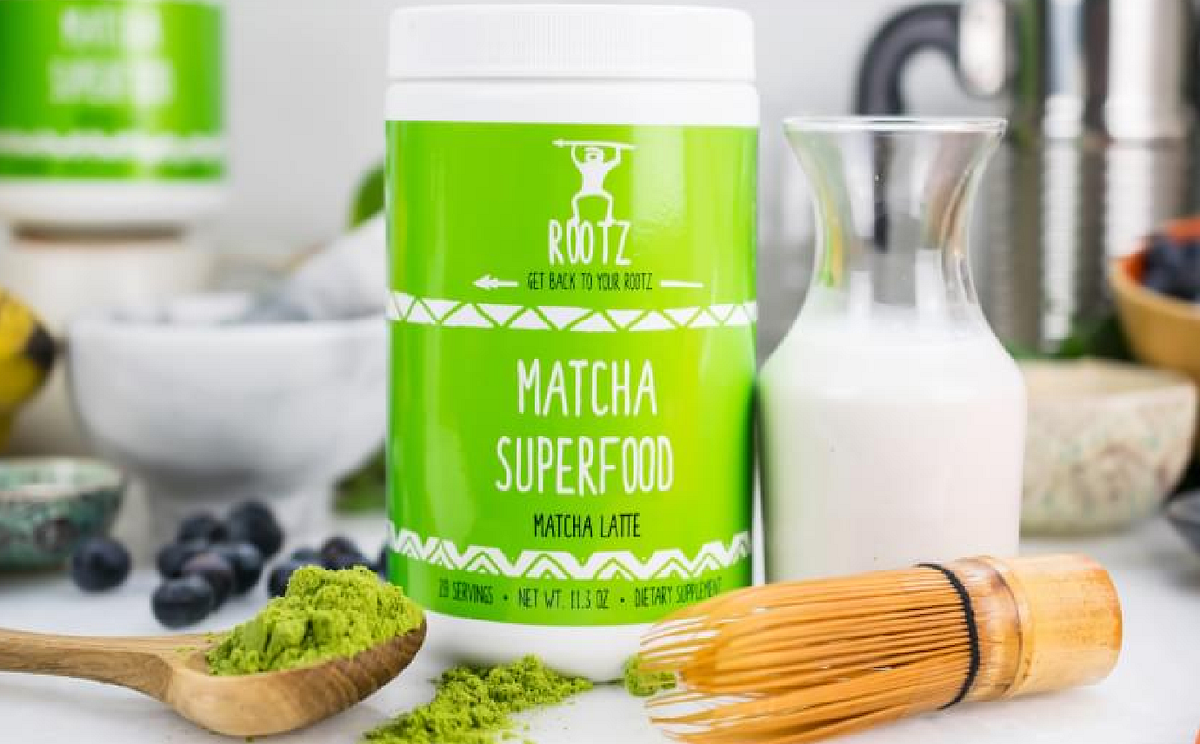

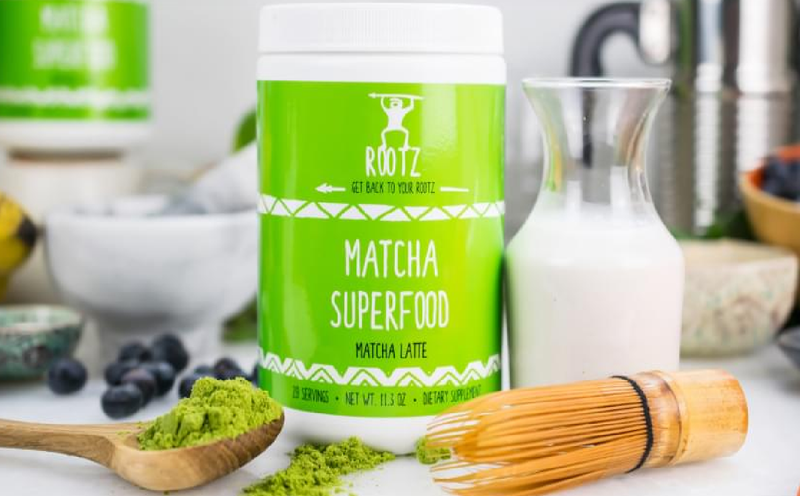






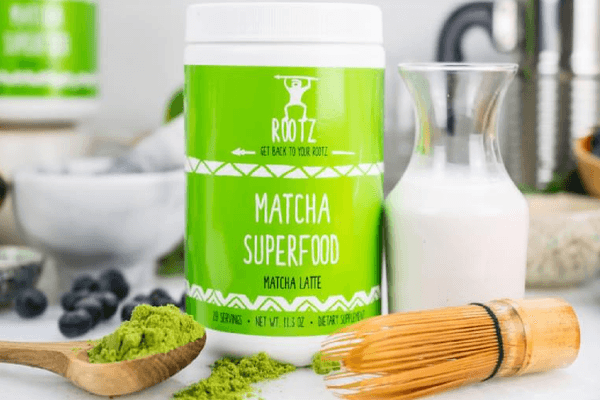



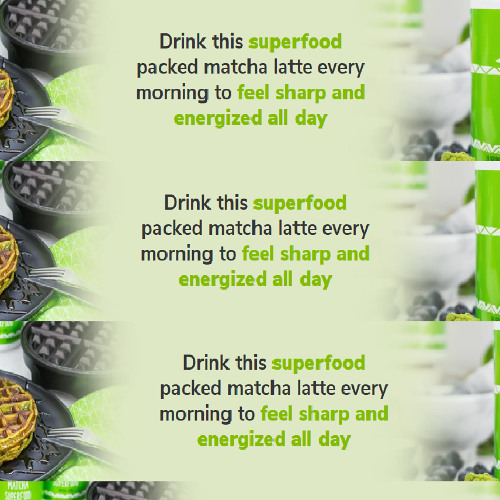












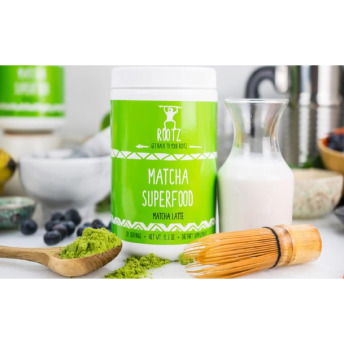
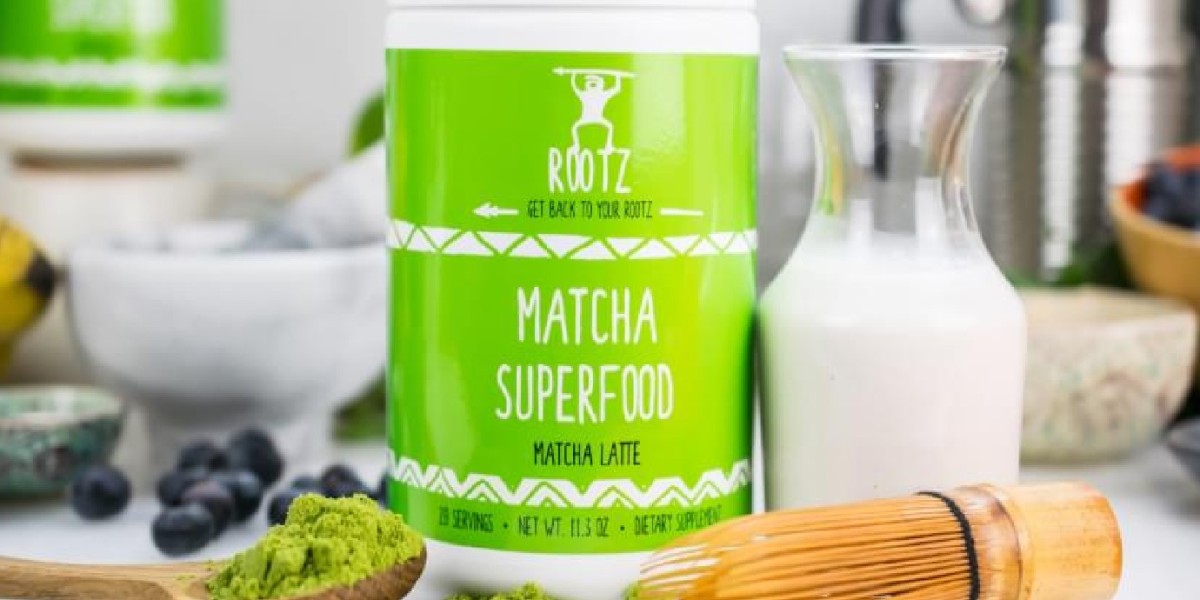




Write a comment ...